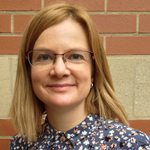Fellow Detail

| Name | Heather Ford |
|---|---|
| Affiliation | University of Leeds |
| Research area code | (L3) Sociology |
| Fellowship Inauguration Year | 2016 |
| Short Biography | My work lies at the intersection of Science and Technology Studies, New Media Studies and User Centered Design. I am concerned with the ways in which different social groups are empowered or disempowered by particular configurations of networked technologies. With a focus both on the analysis of existing systems and relations, as well as practical design considerations, the two key research questions that I am concerned with are: 1) How networked technologies are reconfiguring expertise and authority among particular networked identities, and 2) How communication platforms can be designed (both in terms of policy and technological affordances) in order to enable greater participation by and empowerment of disadvantaged socio-economic groups. In order to pursue these research goals, I employ various methods of digital ethnography, focusing on methods that combine the opportunities for analysing digital data traces left on online platforms and the benefits of engaging with individuals (through interviewing and participant observation) as the subjects and spokespersons of their data. Together with my colleague from the Oxford Internet Institute, Elizabeth Dubois, I have developed a method called ‘trace interviewing’ in which the data traces of individuals are visualised and brought into the interview setting. Equipped with evidence of past actions, trace interviewing enables interviewees an opportunity to speak back to the data that is produced about them, to offer important contextual information about the traces that they have left on the system/s and to produce a richer portrait of user activity than can be captured by quantitative data analysis alone. I see myself as an advocate for the development of digital methods that have user communities at their centre, rather than as mere data points. As a newly-appointed fellow in Digital Methods at the School of Media and Communication, University of Leeds, I would like to build the capacity of researchers to apply trace interviewing and to explore other methods for combining digital data traces in the interview setting. My appointment has been made in conjunction with the Leeds Institute for Data Analytics and I have a unique opportunity to work with these groups, as well as other university academic fellows (http://250greatminds.leeds.ac.uk) from other departments on furthering digital methods approaches to the study of social behavior online. I have co-written a journal article describing and advocating for the use of trace interviewing in the highly ranked International Journal of Communication, and have developed a workshop for ethnographers wanting to use the method and its accompanying software for the Oxford Digital Ethnography Group (OxDEG). After an enthusiastic response from qualitative researchers about the potential of the method for other avenues of online research, one of my goals is to develop the trace interviewing method by developing a community of users who are extending the methods using a variety of tools and approaches and sharing best case practice. In the past month, I have passed my viva for my PhD at the University of Oxford and have started working at the University of Leeds. I am therefore excited about this new chapter in which I will be able to further the my research and teaching goals in the coming months and years; the Software Sustainability Institute Fellowship seems like a perfect induction to help me achieve those goals. |
Previous events
| Title | Start date | End date |
|---|---|---|
| No event. | ||
Blog Posts
| The politics of instruments | 16 Oct 2017 |
| The inevitable abyss: find mentors who will help you get out | 16 Oct 2017 |
| Towards software that supports interpretation rather than quantification | 09 Jun 2017 |